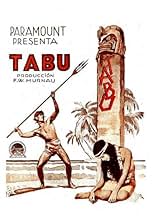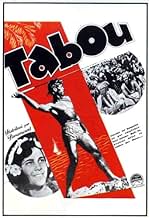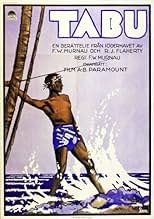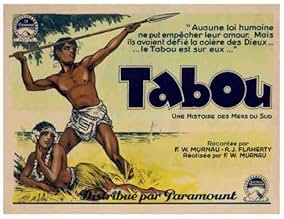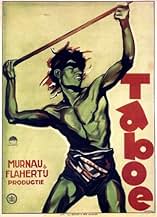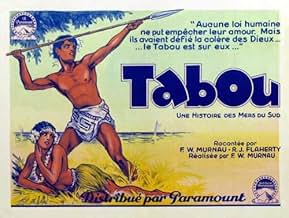Ajouter une intrigue dans votre langueOn the South Pacific island of Bora Bora, a young couple's love is threatened when the tribal chief declares the girl a sacred virgin.On the South Pacific island of Bora Bora, a young couple's love is threatened when the tribal chief declares the girl a sacred virgin.On the South Pacific island of Bora Bora, a young couple's love is threatened when the tribal chief declares the girl a sacred virgin.
- Réalisation
- Scénario
- Casting principal
- Récompensé par 1 Oscar
- 4 victoires au total
- The Girl
- (as Reri)
- The Policeman
- (as Jean)
- The Businessman
- (non crédité)
- The Captain
- (non crédité)
- Boys Friend
- (non crédité)
Avis à la une
The best spear-fisherman on Bora Bora is a handsome young man billed simply as The Boy (Matahi). His legendary status and unparalleled skill makes him popular amongst the islanders, and soon he has caught the eye of The Girl (Reri - who went on to star on Broadway as Anne Chevalier). They romance each other, but their affair is soon halted by the arrival of emissary The Old Warrior (Hitu), who proclaims Reri as the sacred maiden. She is 'tabu', and cannot be looked upon by any man unless he wishes the punishment of death. The couple brave storm and sea to escape, an arrive in a French-colonised island, where Matahi start work as a pearl diver. But their happiness is fleeting, and Reri is soon haunted by the image of Hitu, terrified she may have angered the gods.
The plot is hardly anything new, but Floyd Crosby's Oscar-winning cinematography makes Tabu more socially aware that the film may have you believe. The subtle yet crucial involvement of the French colonists, finding amusement at Matahi's lack of understanding regarding money and material wealth, is a clear swipe at the creeping of Western civilisation. Bora Bora won't stay pure for much longer. And that adds a gravitas to Matahi and Reri's plight - not only is their romance doomed, but so are their traditions and society. It is one of the last great silent films, a reminder that sound can be an unnecessary distraction, and that picture's can sometimes genuinely speak louder than words.
www.the-wrath-of-blog.blogspot.com
Sadly, this was to be F. W. Murnau's last film. Despite a short life, he made many great films (including this one)... and then came a car accident that left us without another three or four decades of genius.
On the bright side, cinematographer Floyd Crosby won an Academy Award for Best Cinematography for his work on this film. Crosby went on to work for a great many years, bringing out the best in such directors as Roger Corman. In "Tabu", he uses the camera to tell a story without words -- body language and eye movement tell us almost everything we need to follow the plot.
The film was not a box office success upon release, grossing just $472,000 worldwide, which failed to recoup Murnau and Paramount's investment. This seems odd today, when it is considered a classic, but there is no secret that critically successful films and commercially successful films are not always the same thing.
The Image DVD features commentary by film historian Janet Bergstrom, which is quite excellent. Other editions feature other commentary, but I have not heard it and cannot compare.
This one has one thing distinguishing itself from the others - the cast is all actually Polynesian, or partly so (sorry Dorothy). It does bring in the common troubles of indigenous peoples: wanting to escape their stifling tribal atmosphere, they have a hard time coping with the outside world's currency economy and alcoholic drink. The movie eschews the Hollywood ending. Anne Chevalier is a treat, and a climatic moment late in the movie is directed for maximum shock.
Le saviez-vous
- AnecdotesProducer/director/co-writer F.W. Murnau died in a car accident a few days after starting work on the music for this film. It had its New York premiere a week later.
- Citations
The Girl: [writing a goodbye letter] I must go. Hitu is here and waits for me. You will die if I do not obey. I will go so that you may live. The tabu is upon us. I have been so happy with you far more than I deserved. The love you have given me, I will keep to the last beat of my heart. Across the great waters, I will come to you in your dreams when the moon spreads its path on the sea. Farewell.
- ConnexionsEdited into Treibjagd in der Südsee (1940)
Meilleurs choix
- How long is Tabu: A Story of the South Seas?Alimenté par Alexa
Détails
Box-office
- Budget
- 150 000 $US (estimé)
- Durée
- 1h 26min(86 min)
- Mixage


